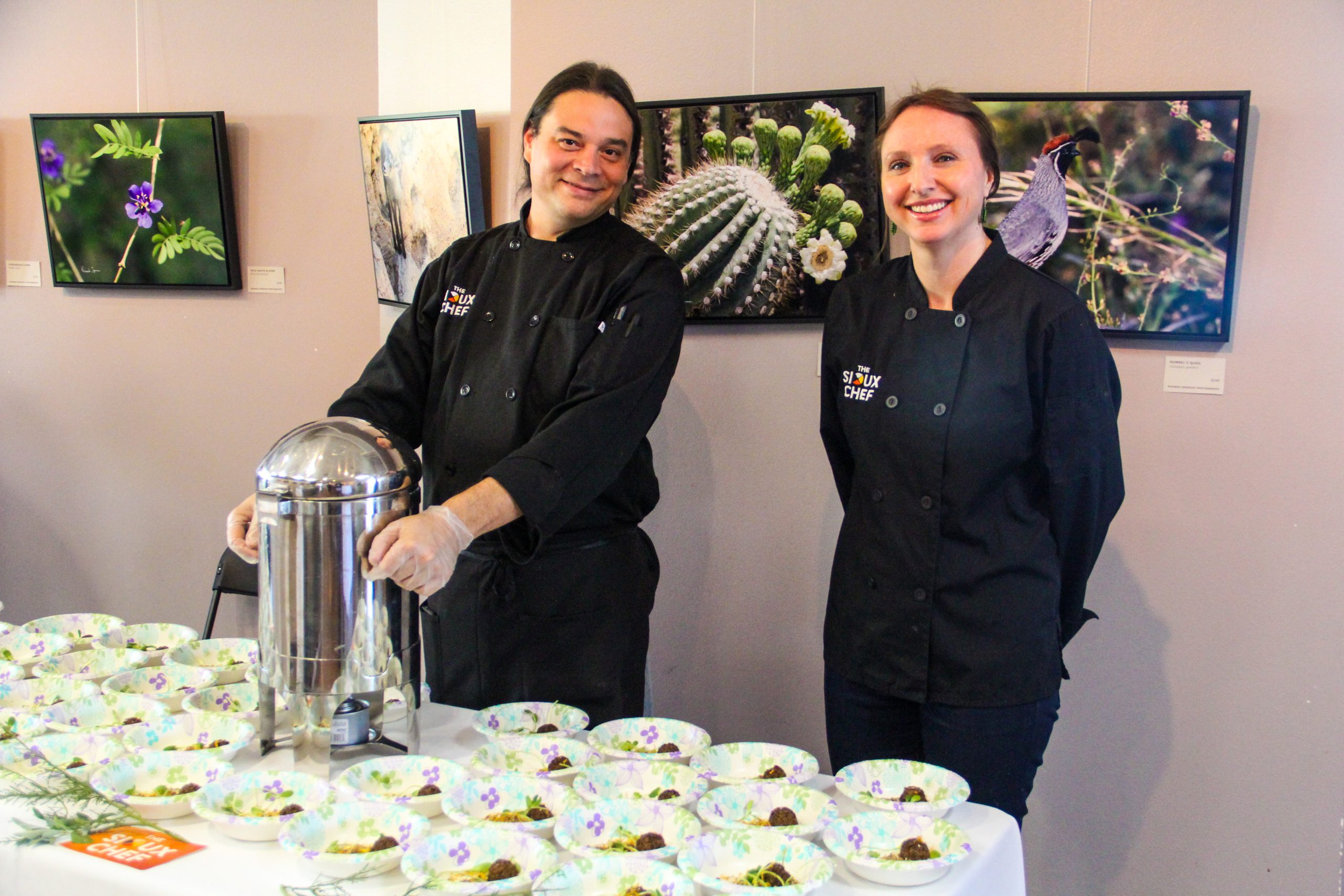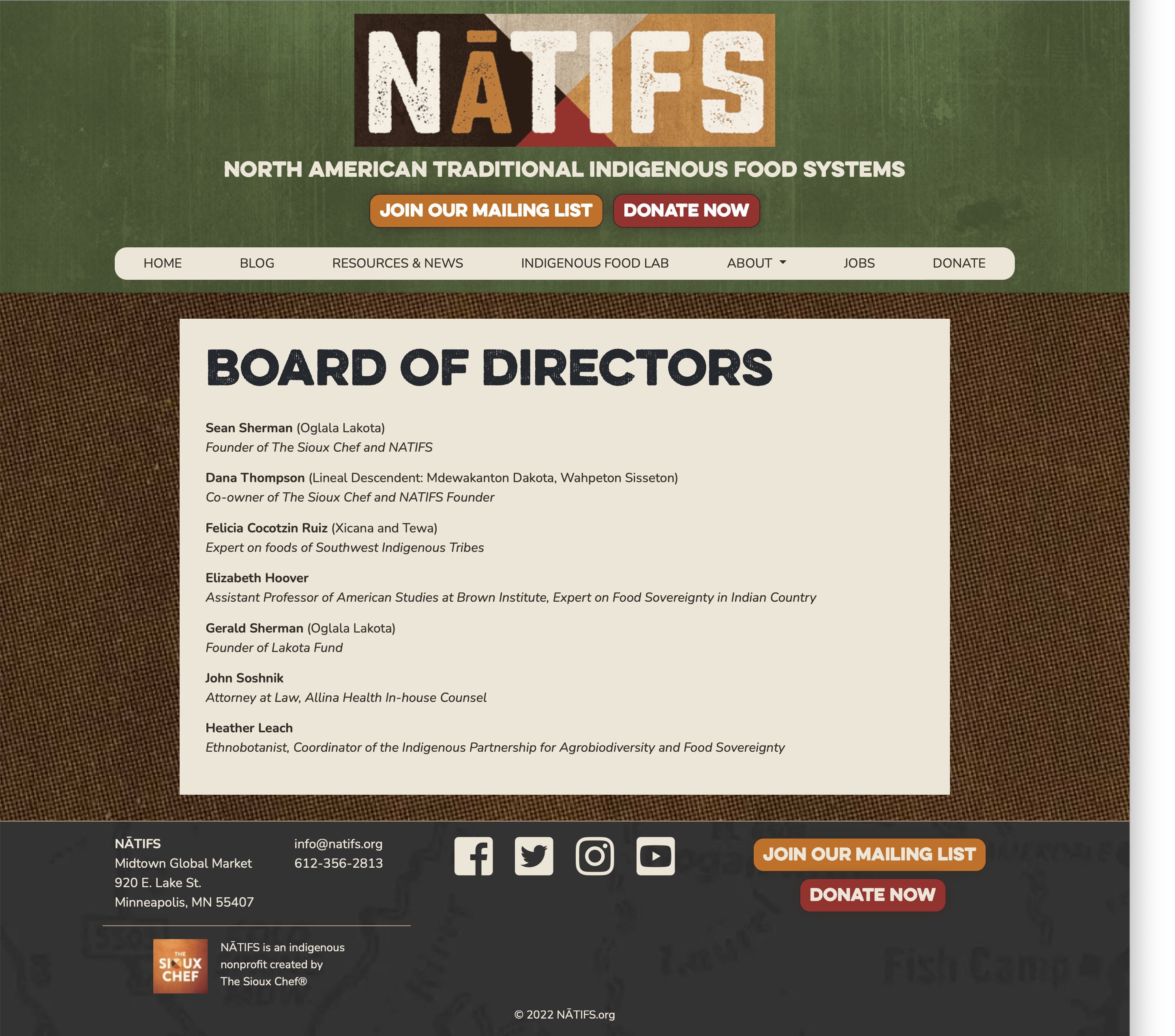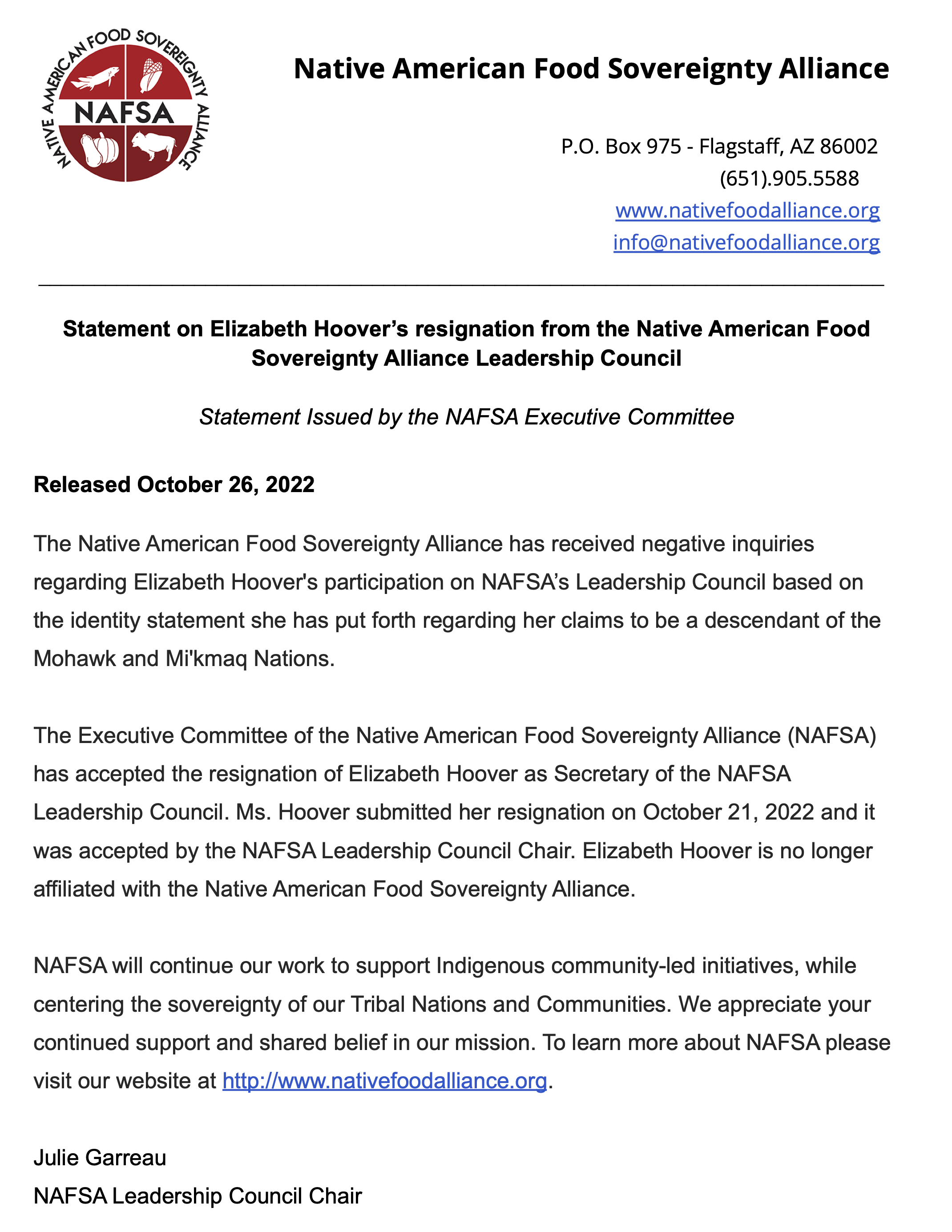Indianz.Com >
News > Controversial scholar walks away from Native food organizations
 Elizabeth Hoover, an associate professor of environmental science, policy and management at the University of California Berkeley, is described as a “co-sponsor” of the Indigenous Community Learning Garden on campus. She also taught a spring 2022 course called “Indigenous Food Sovereignty.” Photo by Adam Sings in the Timber / UC Berkeley
Elizabeth Hoover, an associate professor of environmental science, policy and management at the University of California Berkeley, is described as a “co-sponsor” of the Indigenous Community Learning Garden on campus. She also taught a spring 2022 course called “Indigenous Food Sovereignty.” Photo by Adam Sings in the Timber / UC Berkeley
Controversial scholar walks away from Native food organizations
Liz Hoover spent decades claiming to be Mohawk and Mi’kmaq
Thursday, October 27, 2022
By Acee Agoyo
Indianz.Com
A
controversial scholar who claimed to be Native for decades has ended her relationships with two prominent Native food organizations.
Elizabeth Hoover, a
professor at the University of California in Berkeley, built her career on the backs of the Native food sovereignty movement. Yet in a statement disavowing her claimed tribal affiliations, she said she hoped to continue her efforts in the space — so long as she felt welcome.
“Going forward, I will continue to passionately support food sovereignty and environmental justice movements in Native communities where and when I am invited to do so,” Hoover, who is more commonly known as Liz, said in a
“Statement about Identity” posted on her recently-created website.
The Native American Food Sovereignty Alliance issued a statement on October 26, 2022, revealing the organization had received “negative inquiries” about its former association with Liz Hoover.
But the
Native American Food Sovereignty Alliance disclosed that Hoover submitted her resignation from the organization’s leadership council barely a day after she posted the statement. She had been a board member for the group since 2016, and had even served as secretary.
“The Executive Committee of the Native American Food Sovereignty Alliance (NAFSA) has accepted the resignation of Elizabeth Hoover as Secretary of the NAFSA Leadership Council,”
Julie Garreau, a citizen of the
Cheyenne River Sioux Tribe who serves as chair of the group’s governing board, said in a
statement on Wednesday.
“Ms. Hoover submitted her resignation on October 21, 2022 and it was accepted by the NAFSA Leadership Council Chair,” Garreau continued. “Elizabeth Hoover is no longer affiliated with the Native American Food Sovereignty Alliance.”
While Hoover’s separation was voluntary, Garreau indicated that the organization itself has been dealing with the harms caused by people who misrepresent their background. In the statement, she said NAFSA had “received negative inquiries” about the scholar’s presence — all based on her admission that she lacks ties to any Mohawk or Mi’kmaq tribal community.
“NAFSA will continue our work to support Indigenous community-led initiatives, while centering the sovereignty of our Tribal Nations and Communities,” Garreau said.
 Sean Sherman, left, and Dana Thompson of The Sioux Chef and North American Traditional Indigenous Food Systems are seen in a March 2016 post on “From Garden Warriors to Good Seeds: Indigenizing the Local Food Movement,” a website published by Liz Hoover in connection with a Native food tour that was funded by Brown University and was supported by the Ford Foundation. Photo by Elizabeth Hoover (CC BY-NC-ND 4.0)
Sean Sherman, left, and Dana Thompson of The Sioux Chef and North American Traditional Indigenous Food Systems are seen in a March 2016 post on “From Garden Warriors to Good Seeds: Indigenizing the Local Food Movement,” a website published by Liz Hoover in connection with a Native food tour that was funded by Brown University and was supported by the Ford Foundation. Photo by Elizabeth Hoover (CC BY-NC-ND 4.0)
But NAFSA isn’t the only place where Hoover apparently isn’t welcome. She is no longer listed as a board member for
North American Traditional Indigenous Food Systems, a non-profit led by
Sean Sherman, a citizen of the
Oglala Sioux Tribe who is the
most celebrated Native chef in the United States.
As with her dealings with NAFSA, Hoover’s tenure at NATIFS goes back several years. According to her
professional resume, she had been a board member since 2017 and was labeled as an “Expert on Food Sovereignty in Indian Country.”
But earlier this year, NATIFS removed “Mohawk” from Hoover’s listing on the
board of directors page on natifs.org. No public explanation was provided for the change, which came only after the organization faced considerable questions about its association with the scholar.
In February, the
Chi-Nations Youth Council, a group of young Native people in Chicago, Illinois, accused Hoover of “
taking resources from Native people for years and lying about her ancestry.” The statement itself warned people about her then-partner Adam Sings In The Timber, a photographer and citizen of the
Crow Tribe who was publicly accused of sexual assault and sexual misconduct by young Native women.
NATIFS ended up taking down the board of directors page entirely after facing even more fire about a high-ranking employee’s background, which included violence against a Native woman. Dana Thompson, the organization’s co-found and executive director whose tribal affiliation is
based on being of descent, did not respond to inquiries about the discrepancy in advance of an
Indianz.Com story published on July 22.
Before: Elizabeth Hoover (Mohawk)
 A screenshot of the board of directors page for the North American Traditional Indigenous Food Systems (NATIFS) was taken on March 14, 2022. It shows seven members of the board, including “Elizabeth Hoover (Mohawk)” and “Felicia Cocotzin Ruiz (Xicana and Tewa).”
A screenshot of the board of directors page for the North American Traditional Indigenous Food Systems (NATIFS) was taken on March 14, 2022. It shows seven members of the board, including “Elizabeth Hoover (Mohawk)” and “Felicia Cocotzin Ruiz (Xicana and Tewa).”
After …
 By May 18 2022, the board of directors page on natifs.org showed no tribal affiliation for board member Liz Hoover. Felicia Cocotzin Ruiz is still described as “Xicana and Tewa” though.
By May 18 2022, the board of directors page on natifs.org showed no tribal affiliation for board member Liz Hoover. Felicia Cocotzin Ruiz is still described as “Xicana and Tewa” though.
Yet when the page re-emerged days later, Hoover was still listed as a member of the board of directors — without the “Mohawk” affiliation. Thompson did not respond to another inquiry, placed via email around mid-day on Wednesday, about the latest change in the NATIFS leadership.
Likewise, Thompson did not explain why another person’s name no longer appears on the page. As with Hoover,
Felicia “Cocotzin” Ruiz has risen to prominence in Native food circles based on tribal identity claims that are unverifiable.
NATIFS previously described Ruiz as an “Expert on foods of Southwest Indigenous Tribes” and stated that she was “Xicana and Tewa.” Neither designation is the name of any tribe in the Southwest.
Still, Ruiz boasts of her association with the NATIFS circle. Her
kitchencurandera.com homepage includes a glowing quote from Sherman, which he provided for her book as the “CEO and founder of The Sioux Chef and NATIFS.org.”
The departures of Hoover and Ruiz leave NATIFS, whose stature is closely tied to
Sherman’s prominence as a leading figure in the Native food world, with five board members. Two of the five don’t have any tribal affiliations listed.
Despite Hoover leaving NAFSA and NATIFS, both of which operate as non-profits,
she remains employed at the UC Berkeley, where she
had been hired in time for the fall 2020 semester. A subsequent
story in the Berkeley News said she was “one of 11 self-identified Native American/Alaska Native ladder-rank faculty members” at the world renown public land-grant institution.
The story further associated Hoover with “cluster hires” — a practice that is growing among some institutions of higher learning in order to bring more diversity to their faculty. She was quoted as saying that such hires “are going to be the only way universities can build up some of these areas.”
However, a spokesperson from UC Berkeley confirmed that Hoover was not part of the Native American and Indigenous Peoples cluster at the university. The October 21 story on Indianz.Com was incorrect in associating the scholar with the practice.
Related Stories




